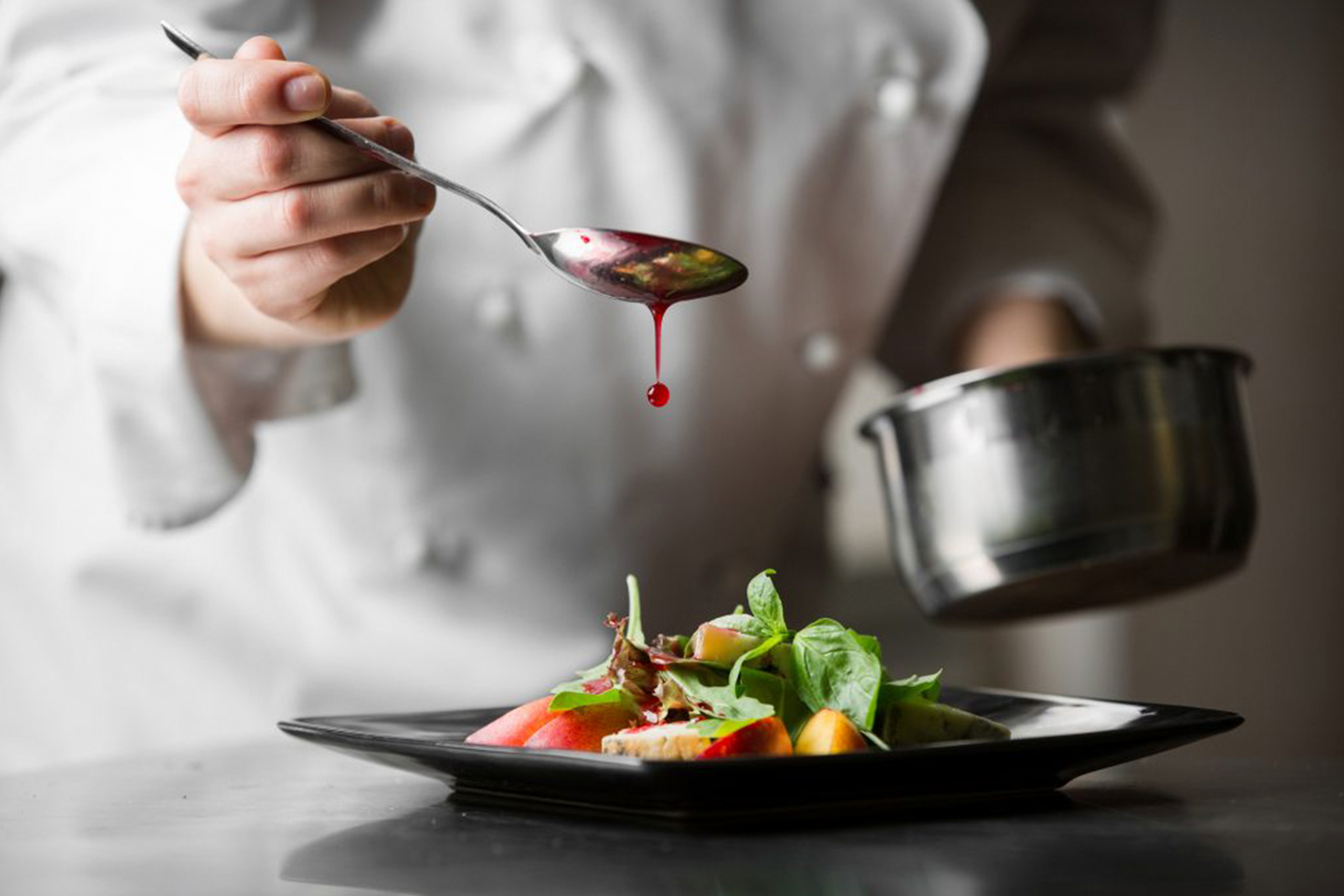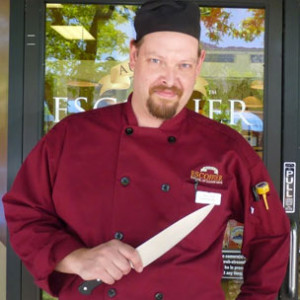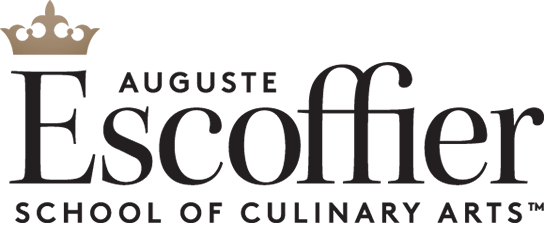
Culinary Arts
Experience a dynamic and challenging environment

“I chose Auguste Escoffier School of Culinary Arts because of the hands-on environment, attention to detail and the reputation of the school. My education far exceeded my expectations. The Chef Educators really care about teaching and are open to working with any student that wants help. My class was made up of people with all levels of skill and from all parts of the country. This really enhanced the experience, because we learned from each other.”*
Aaron Lande
Program Highlights

Hands-On Training

Small Class Sizes

Entrepreneurial Curriculum

Farm To Table® Experience

Culinary Industry Externship

Experienced Chef Educators

Career Services Support

Nationally Accredited
Holden O’Leary, Executive Chef & Culinary Arts Graduate*
Associate of Occupational Studies Degree in Culinary Arts
60 Weeks

30 weeks of hands-on training
18 weeks of culinary inspired lecture classes
Exciting 6-week Farm To Table® Experience
12 weeks of industry training through externship
Curriculum
Culinary Foundations
The class focuses on the importance of proper hygiene, food handling, food storage, cleaning, pest control and HACCP in a food service operation are explored. The national ServSafe® exam is administered as part of this course.
Restaurant Operations
In this course, students study the hierarchy of management in food service, and the skills needed to succeed as a manager: training employees, motivating them, disciplining them, and creating a safe and positive work environment.
Business & Professional Communications
This course emphasizes the principles and practical application of effective professional communication behaviors within professional, business, and organizational contexts.
World History & Culture from the Culinary Perspective
This course examines the role of food and its contribution and influence over history, culture, religion, economics, and politics.
Culinary Arts and Patisserie
In the Culinary Arts and Patisserie course, students build upon the foundations taught in Culinary Foundations. The course begins with an overview of breakfast cookery including classical American breakfast items such as egg cookery, quick breads, muffins, biscuits and breakfast meats.
Food Service Math and Accounting
Foodservice Math & Accounting introduces students to managerial accounting concepts and explains their applications to specific operations within the hospitality industry.
Technical Writing for the Hospitality Industry
Prepares students to write in the hospitality and foodservice professions.
World Cuisines
In this course, students will take an in-depth look at a variety of cuisines from around the world. Students will take a global journey by studying the classical cuisines of France and Italy, and exploring a variety of regional cuisines from Europe, the Middle East, Asia, and the Americas.
The Science of Nutrition
The basic principles of nutrition are investigated. Emphasis is placed on the nutrients, food sources, and their utilization in the body for growth and health throughout life.
Culinary Entrepreneurship
This course covers such topics as business planning, pricing, credit management, government regulation, and legal concerns. Business ethics and the crucial role and importance of management and leadership are also covered.
Farm to Table® Experience
This 6-week course provides the students with a hands-on experience on a working farm/ranch or vineyard/orchard. The chef instructor conducts the lecture and lab activities to coincide with the harvested item(s) for a catered event executed by the students on-site. The students, under the direction of a Farmer/Rancher collect, harvest foods and/or proteins for the students’ lab activities.
Culinary Industry Externship I
Students gain relevant experience by working in an approved food service establishment.
Culinary Industry Externship II
Students are required to satisfy another 171 working hours and complete other required assignments to fulfill their externship commitment as part of their graduation requirements.

“If anyone is serious about learning the culinary arts, they should consider Escoffier. I was honored to work with many great chefs in school and learn from them. Our chef instructors bring their unique perspectives and backgrounds to the table and are all very dedicated to transferring their valuable knowledge to the students. School administration staff also works hard to pave the path of success for every individual in school.”*
Mahsa Savadkouhi, Culinary Arts Graduate
Farm To Table® Experience
The 6-week Farm To Table® Experience provides students with an in-depth knowledge of where food comes from, the advantages of buying local, various farming and production methods, and how to make the best sustainable and ethical ingredient choices throughout their culinary careers.
Farm Days
Farm Days
Visiting a farm or food procurement facility to see specific parts of the food cycle; some of these are tours of facilities and others are very hands-on.
Kitchen Days
Kitchen Days
Students work in the kitchen to apply the concepts and techniques that they have learned from previous classes to new material gained from the farm days.
Culmination Days
Culmination Days
Students work in teams to plan and execute an event for friends and family within a specified budget.
Farm To Table® Experience Kitchen Days
Where Does Your Food Come From?
Discussion about product sourcing, fabrication, processing, types of farming, history and modernization of food processes.
Whole Animal Butchery
Discussion of butchery processes and practices; explanation of technique and primal/sub primal cuts.
Food Service Operations
Discussion of food service operation types, front of house service, kitchen processes, basic management principles; students plan and prepare for culmination and conduct Quick Fire drills in the kitchen to get used to traditional line cooking operations and stations.
Sustainable and Ethical food sourcing
Discussion of sustainable food sourcing practices; debates about efficacy and other aspects of these practices; students engage in exercises to evaluate proteins raised and processed in a variety of ways (i.e. conventional vs grass fed beef, etc.)
Event Planning and Execution
Discussion of event types and basic procedures for planning food and beverage events; students work as a team to prepare for their culmination events including all menu development and design, product procurement, budgeting, service, and food preparation tasks.

“Now when I cook food I think about where it came from – the blood, sweat, and tears, including my own farm – that helped bring it to me. We have this romantic idea of what it means to farm – the idealistic picture that is plastered on the outside of salad dressing at the market. Reality is it’s a 14-hour day; it’s hard, you know. My respect for what it means to farm has deepened and matured, therefore when I cook, I am now experiencing a deeper connection: a sanctity. Now, when I cook food I think about where it came from – the blood, sweat, and tears, including my own farm – that helped bring it to me. With that same sense of respect, that is how I approach preparing food.”*
Marcus McCauley, Culinary Arts Graduate, Executive Chef & Farm Manager, McCauley Family Farm
An Inside Look Into The Farm To Table® Experience
A Typical Week at Escoffier**
25 hours per week on campus
5 to 10 hours per week for work outside of class
Class format consists of research, planning, discussion, experience, feedback and reflection
kitchen courses, lecture courses and 12 week industry externship experience
Online interface for course materials so all resources are in one place
**Hours per week recommended for academics and school-related activities, depending on the student’s learning style.
Tuition
TOTAL PROGRAM COST:
$39,365*
*Total program cost includes tuition, uniforms (non-refundable), toolkit, and an optional non-refundable technology fee. The Associate of Occupational Studies Degree in Culinary Arts cost also includes non-refundable coursepacks. The cost of books is not included. Students may choose to purchase books when enrolling. For more cost details, see the catalog.

“Since the beginning of the admissions process I felt like everyone at the Auguste Escoffier School of Culinary Arts was personally interested in my success. Halfway through the Culinary Arts program, I continuously built on the strong foundation of skills emphasized from the start. Our Chef Educator had exceeded my expectations and drove a standard of personal excellence. While each classmate brought their own strengths, we were encouraged to collaborate and push one another to achieve our daily goals. I knew I would have the support of an amazing network ensuring my successful career upon completion of the program. I am extremely pleased with my choice to attend Escoffier.”*

